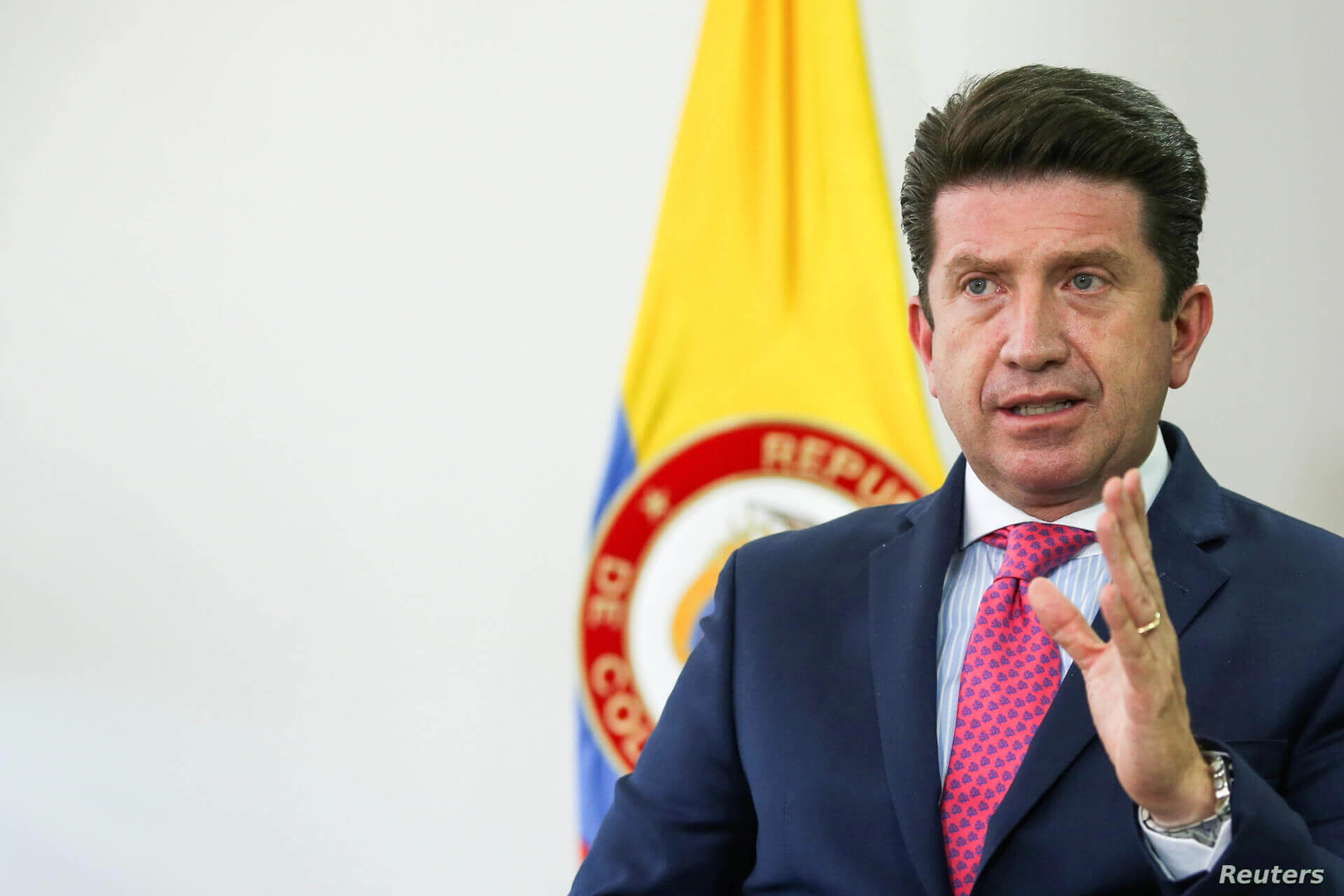The Russian Foreign Ministry summoned Colombian Ambassador to Moscow Alfonso López Caballero following Colombian Defence Minister Diego Molano’s suggestions that Russia had conducted cyberattacks against Colombia. Molano suggested that the current protests in the country, which began on April 28 and have reportedly claimed at least 52 lives, are being driven by foreign intervention.
Without offering evidence, Molano said last Friday that there is “information on social media of quite a few attacks and mobilisations originating from Russia.” His remarks immediately drew a strong response from the Russian embassy in Bogotá, which expressed its “deep perplexity” at the “serious accusations” that Moscow considers “completely unfounded and not supported by specific evidence.” It further warned that such comments could derail bilateral ties.
The Russian Foreign Ministry has now doubled down by saying: “If the Colombian side has confirmed evidence of cyberattacks and is genuinely interested in establishing their origin, there exist official channels of information exchanges and the corresponding infrastructure for this.” The statement went on to say: “Russia's agency in charge is the National Centre for Computer Incidents. At a certain point, the Russian agencies concerned presented a draft treaty on legal assistance, but the Colombian side refused to discuss it. Once again we are calling upon our partners to respond to our calls to avoid misunderstanding in the future.”
It also called on Colombia to honour the “spirit of friendship and mutual respect that have historically linked” the two nations.
Russia has in the recent past said that it echoes the concerns of the Organisation of American States (OAS), the Office of the United Nations High Commissioner for Human Rights (OHCHR), the European Union (EU), the United States (US), and other international actors about the “disproportionate use of force against protesters, as a result of which dozens have been killed and hundreds injured.” Foreign Ministry spokesperson Maria Zakharova said in a press briefing on May 13: “We expect these events to be thoroughly investigated and hope that the Colombian authorities will take measures to preclude a repetition of these tragedies.”
On April 28, thousands of Colombians took to the streets to protest against a controversial tax reform proposed by President Iván Duque. Duque has since withdrawn his decision to implement the reform, and the protests have led to the resignations of Finance Minister Alberto Carrasquilla, Deputy Finance Minister Juan Alberto Londoño Martínez, Foreign Minister Claudia Blum. Furthermore, on Saturday, High Commissioner for Peace Miguel Ceballos, who was in charge of negotiating with the National Strike Committee (CNP) to bring an end to the ongoing protests, also resigned.
However, the protests have endured and demonstrators are continuing to demand universal basic income, the protection of agricultural production, assistance for small businesses, reforms in the healthcare and education sectors, and expedited access to COVID-19 vaccines. Citizens are concerned by the fact that poverty rose from 36% in 2019 to 42.5% in 2020. Simultaneously, the number of families eating less than three meals a day has tripled since the beginning of the pandemic. Furthermore, the country’s economy contracted by 6.8% in 2020 and unemployment has skyrocketed.
There is also a renewed focus on police brutality, considering that there have been dozens of deaths, over 800 injuries, and more than 700 arrests during the protests. Furthermore, President Duque has ordered the militarisation of certain cities, like Calí.
Defence Minister Molano, however, has defended the police, saying that security forces must take an uncompromising position against “violence and all forms of assault that affect the rights of Colombians” and “systematic attack[s] on the police.” Comments like these have pushed protesters to call for Molano’s resignation or dismissal.
The continued protests have strained the economy and public services, in great part due to road blockades by protesters. For example, there are acute water shortages in areas of the capital city Bogotá, as the transport of purifiers and chemicals used in water treatment has been obstructed by barricades erected along highways. There are also shortages of gasoline and food.
Several businesses have also been forced to suspend or severely restrict operations due to roadblocks, impacting the livelihood of tens of thousands of people. The retail industry in Calí, for instance, has recorded a staggering 80% drop in sales over the past three weeks.
Promisingly, on Monday, Reuters reported that the government had struck “pre-agreements” with the CNP, and the General Work Confederation appeared to confirm this by saying that the pre-agreements were 90% ‘complete’.
However, the CNP has now called for a new wave of protests, after it emerged that the Duque administration had postponed the signing of the agreements.
Against this backdrop, it is no surprise that Duque’s disapproval rating now stands at 76%. His approval rating, too, stands at 18%, which is the lowest for a Colombian leader since Gallup began recording polling data in 1994.
Russia Refutes Colombia’s Allegations of Conducting Cyberattacks to Drive Ongoing Protests
Without offering evidence, Molano said last Friday that there is “information on social media of quite a few attacks and mobilisations originating from Russia.”
May 27, 2021

IMAGE SOURCE: LUISA GONZALEZ / REUTERSColombian President Iván Duque
